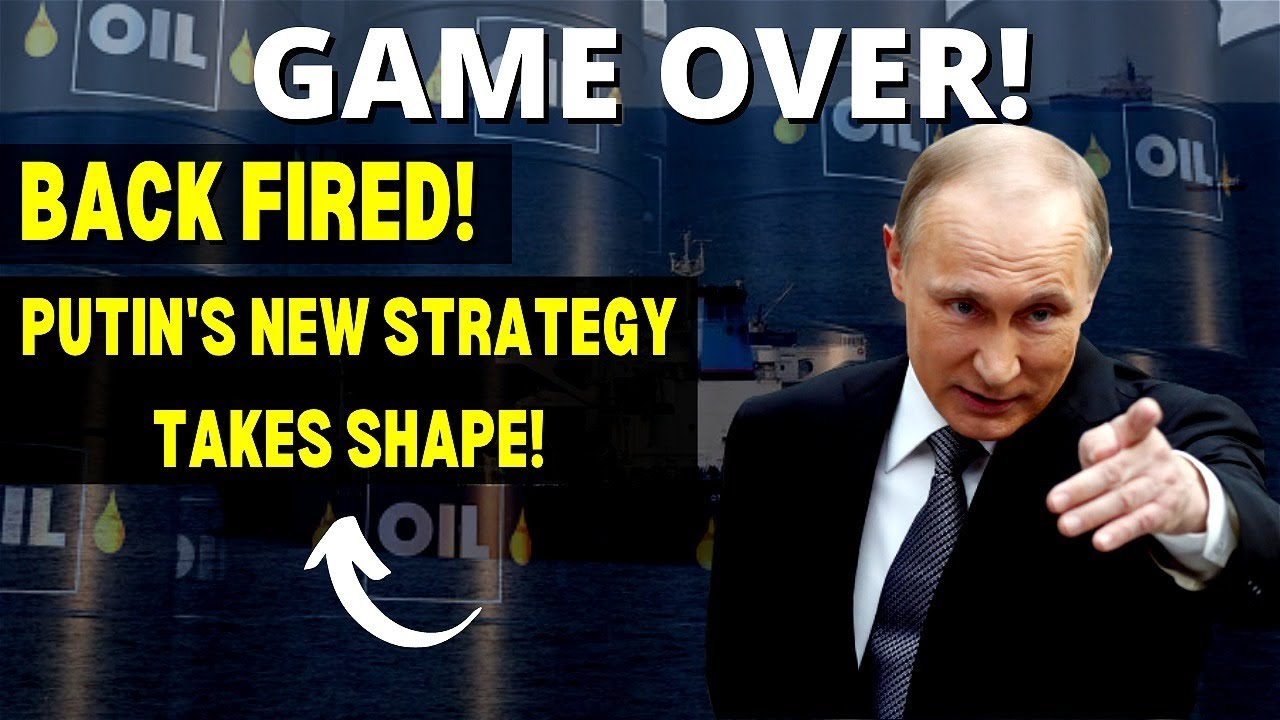
Russia expands its sanction busting “shadow fleet” of oil tankers to 600!
Keep up to Date & Bypass the Big Tech Censorship
Get uncensored news and updates, subscribe to our daily FREE newsletter!
This expansion of the “shadow fleet” of ships transporting Russian oil highlights the impact of sanctions and restrictions imposed by the international community.
According to trading giant Trafigura, this fleet has grown to a staggering 600 tankers. And that’s 20% of the world’s crude oil vessels and 7% of the world’s oil product tankers “ostensibly doing Russian business.”
This is a massive change from the small, sanctioned barrel-managing fleets of the past in countries like Iran and Venezuela. Meanwhile, the European Union is set to ban almost all seaborne imports of Russian refined fuels this month.
| Recommended Books [ see all ] | ||||
|---|---|---|---|---|
 |  |  |  |
 |
In addition, it will impose a cap on the price of Russian petroleum for access to key western services like insurance.
According to an industry expert, Luckock, the ban on Russian oil will eventually result in higher prices for crude and related products.
This is because the ban will make shipping routes longer and more complex. But despite the ban, oil prices have remained low due to continued trading with Moscow.
In addition, Luckock predicts that crude prices will rise, reaching as high as $90 per barrel this summer due to a recovering Chinese demand.
And he believes breaking the $100 per barrel mark may be challenging. Luckock also stated that the current situation is creating a significant challenge for the oil market.
And it is adding layers of complexity and bureaucracy to an industry that has always relied on speed and efficiency. He added that the sanctions could lead to increased costs for end-consumers, as the inefficiencies will be passed on to them.
However, the company is still optimistic about the future and is ready to adapt to the new regulations. Luckock stated that Trafigura will continue to find ways to operate within the constraints of the sanctions while still maintaining its commitment to serving its customers.
Now, Serbian President Aleksandar Vucic praised Russia for handling the impact of sanctions better than anyone in the West.
He said the Russians have adapted to the sanctions “above expectations.” And he acknowledged the role of the Governor of the Russian Central Bank, Elvira Nabiullina, in leading the country through this challenging time.
Vucic recognized the efforts of Nabiullina and her team at the Central Bank for making strategic decisions that have helped to stabilize the Russian economy.
Meanwhile, Prince Abdulaziz bin Salman Al Saud warned about the potential impact of Western sanctions on Russia’s energy sector and the ripple effects it could have on global energy supplies.
The minister believes that the sanctions could cause a shortage of energy supplies when needed, which would be a major concern for the world.
Moreover, the sanctions have forced Russia to seek alternative markets in Asia, resulting in increased competition for Saudi Arabia in the region.
Additionally, the kingdom has been forced to sell more crude in Europe, which has created a shift in the global energy market dynamics.
You see, the world has learned a key lesson from the energy market events of 2022: OPEC+ is a responsible group of nations.
They only focus on energy and oil market policies and stay clear on political matters. The decision to cut production by 2 million barrels per day helped keep oil prices steady.
And the recent meeting of OPEC+’s monitoring committee recommended keeping production levels stable. Russian President Putin and Saudi Crown Prince Salman also discussed OPEC+’s role in maintaining oil prices.
Furthermore, experts think new sanctions could result in significant economic consequences and weaken the West’s commitment to supporting Ukraine militarily.
Military support from the West, such as the recent delivery of tanks from the US and Germany, has been crucial in Ukraine’s defense against Russia.
The West must also tighten controls on exporting equipment that can be used for military purposes. This includes dual-use technologies like semiconductors to further weaken Putin’s military power.
Economic sanctions have been less effective in curbing Putin’s power than military support. And freezing $300 billion in Russian central bank reserves has limited Putin’s resources. However, sanctions on oil and gas exports have had more negative consequences than positive results. They have increased Russia’s reliance on China and opened new markets for Moscow in Asia. The fall in oil prices has impacted Russia’s economy more than the sanctions.


